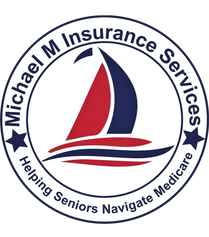Many of us are continuing to work, and we get our insurance Coverage from our employer coverage tool even though we are turning 65 and Medicare eligible. Here are some things to consider.
Do I Have To Go On Medicare?
Maybe. The first thing to consider is Whether my employer has 20 or more employees.
Over 20-
You are not required to sign up for Medicare. The Employer Coverage Tool is as good if not better than Medicare’s, and Medicare is a secondary payer. Most people sign up for Part A (Hospital) coverage because 1) it’s Free (for most of us) and 2) Whatever your company plan doesn’t pay, Medicare will pick up. Since most employer plans come with an employee contribution, it’s a good idea to compare costs with going on Medicare and the available health plans that go with it. Sometimes the employer plan isn’t such a good deal, and sometimes, it pays to take the covered spouse off of the company plan. Medicare is cheaper, and the health plan premium contribution goes down as well.
Under 20-
You will have to sign up for Medicare Parts A and B and ensure that your Rx Plan is considered creditable to avoid a penalty.
Mike Miligi- Owner

